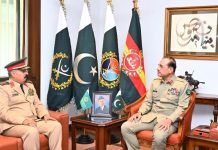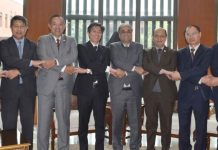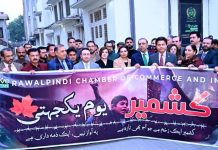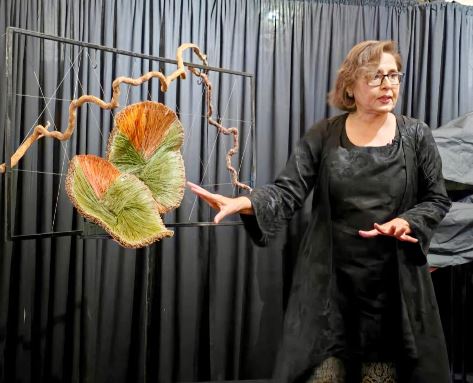Interview with Teresa Nicolau
——————
Ansar M Bhatti
ISLAMABAD: Acclaimed Portuguese journalist and author, Teresa Nicolau, is currently visiting Pakistan at the invitation of the Portuguese Embassy. Nicolau, a distinguished journalist known for her engaging storytelling and deep insights into culture and media’s influence on public discourse, has made significant contributions to both Portuguese journalism and literature. She is currently the Director of Culture at Santa Casa da Misericórdia in Lisbon. Nicolau granted an exclusive interview to Daily Islamabad POST, Centreline magazine, and Diplomatic News Agency. Here are excerpts from her interview. The full interview will be published in the March issue of CENTRELINE.

On Her Impressions of Pakistan
“This is my first time in Pakistan, and it’s been a wonderful experience. Having traveled all over the world, I believe that what truly defines a country is its people and culture. It’s fascinating to see how a nation identifies itself through its cultural expressions, arts, and traditions.
Pakistan is a vast country with a rich, ancient history and a key center of global knowledge. I am especially fond of spicy food, and I must say, Pakistan is one of the best places I’ve visited for its flavorful cuisine—perfectly spicy!”
On Areas for Mutual Cooperation

“I see this visit as the beginning of a growing cultural exchange. The Portuguese Embassy has previously invited writers like José Luís Peixoto, an important figure in Portuguese literature, to Pakistan. This marks a step toward deeper literary and cultural understanding between our nations.
I’ve had the chance to meet with a few Pakistani writers and discuss ideas on how we can strengthen literary ties further.”
On Promoting Cultural and Literary Linkages
“As an author and journalist, I strongly believe in the power of arts and culture to foster diplomatic relations. Culture is often the first point of engagement when you visit a new country, and it is a key symbol of soft power.
Portugal also has a growing Pakistani community, which plays an important role in strengthening people-to-people relations between our two countries.”
On Her Inspiration to Become a Writer
“I’ve been telling stories for the last 30 years, and I absolutely love it—whether as a journalist or an author. Storytelling allows me to explore emotions and connect with real people. All my fiction is based on true stories, because I believe truth is another side of reality. If you write with sincerity, you’re telling an authentic story.
I am an avid reader, and reading widely has been essential to my growth as a writer.”
On the Impact of social media
“Unfortunately, social media has distanced many people from books. However, it’s crucial to adapt and embrace digital platforms for publishing. Many writers aren’t familiar with social media tools, but those who learn to use them effectively can gain wider recognition.
While I’m not personally active on social media, I understand its importance. If you want to succeed in today’s world, you must leverage these platforms. Interestingly, in Portugal, people often buy physical copies of books after reading them online, which shows the enduring love for traditional print.”
As regards translation of works in other languages, “I’ve started with a small English booklet, and I plan to translate my book into English and other languages in the future. Urdu is a language I deeply respect, and translating my books into Urdu will help readers who speak the language connect with my work.”
On Her Visit to India
“I also visited India, specifically Mumbai and Pune, because my daughter was studying there at the United World Colleges (UWC). UWC is an important global educational organization, and their Mahindra school in Pune is particularly well-known. It was a wonderful experience to visit my daughter and explore the culture there.”
The full text of the interview shall be published in the March issue of CENTRELINE.












